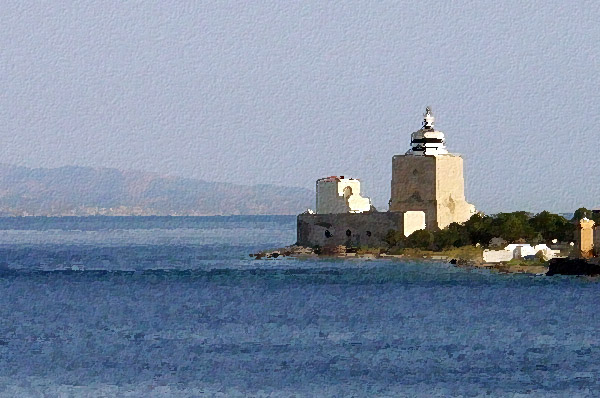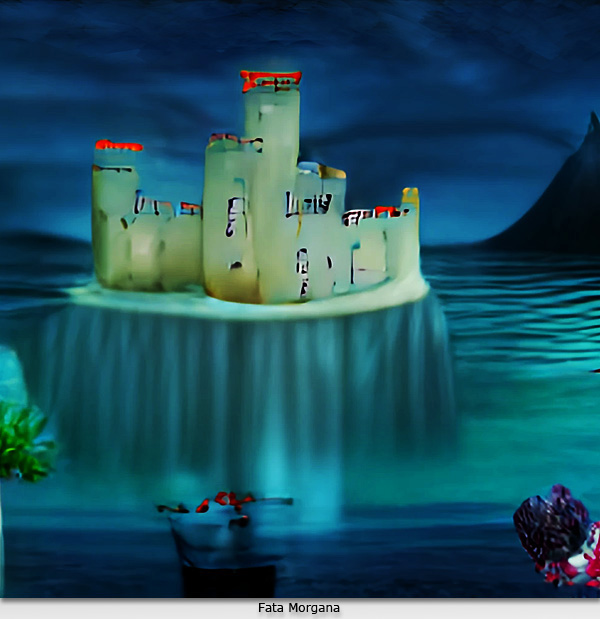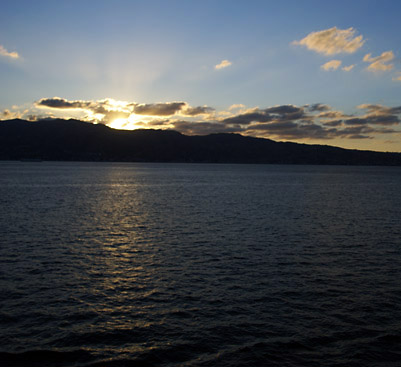|
|
XXIX. CHAOS
I have never beheld the enchantment of the Straits of Messina, that Fata Morgana, when, under certain conditions of weather, phantasmagoric palaces of wondrous shape are cast upon the waters–not mirrored, but standing upright; tangible, as it were; yet diaphanous as a veil of gauze ......................
The chronicles of Messina record the scarcely human feats of the diver
Cola Pesce (Nicholas the Fish).
Many are the fables connected with his name, but the most portentous is this:
One day, during his subaqueous wanderings, he discovered the foundations of
Messina. XXIX. CHAOS
Non ho mai veduto l'incanto dello Stretto di Messina, la Fata Morgana, quando, in determinate condizioni di meteo, palazzi fantasmagorici di forma mirabile sono riflessi sull'acqua, non specularmente, ma in piedi, tangibili, per così dire, ancora diafani come un velo di garza. ......................
Le cronache di Messina registrano le gesta disumane
del tuffatore Pesce Cola (Nicola il
pesce).
Un giorno, durante le sue peregrinazioni
subacqueo, ha scoperto le fondamenta di
Messina. In questa storia di Colapesce era insita una profezia che faceva eco ad un timore popolare fin troppo giustificato.
|




